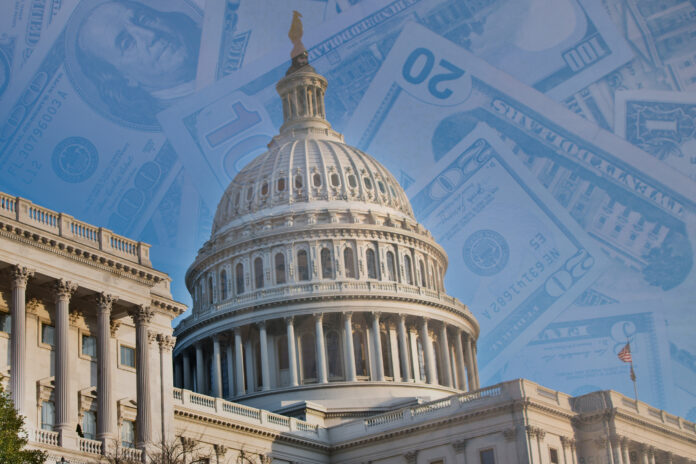
Tonight, the House and Senate passed a stopgap law (H.R. 6119) to avert a federal shutdown that would have kicked in at midnight on December 3. Under the new law, fiscal year (FY) 2021 federal funding levels will stay in place through February 18, 2022. The bill also adds $7 billion in federal spending to support evacuees from Afghanistan. To pass the law, bipartisan leaders first had to quell conservative threats of a shutdown in protest of the Biden Administration’s paused COVID vaccine mandate.
While FY 2022 technically began on October 1 of this year, Congress has failed to pass even one of 12 annual appropriations laws that fund day-to-day operations across the federal government. Starting last spring, the new congressional Democratic majority crafted ambitious proposals to raise domestic spending as well as create a new Community Project Funding earmark program allowing lawmakers to bring federal dollars for public projects to their districts. Congressional Republicans, however, argued they were not included in this process, and objected to Democrats’ planned removal of longstanding policy riders on matters like abortion. Republicans in the Senate control 50 of the chamber’s votes, enough to block Democrats’ appropriations bills from passing into law. Democrats, for their part, argue that despite their objections Republicans have never presented counteroffers for negotiations. The months-long standoff has forced Congress to pass CRs ensuring the federal government is still running on funding levels set during the Trump Administration.
Even after Republican leaders agreed this week to enact another CR and avoid a shutdown, the party’s conservative wing unexpectedly demanded to force a shutdown unless Congress blocked the Biden Administration’s upcoming COVID vaccination mandate. Republican leaders argued that since the mandate is already held up in court, forcing an unpopular and economically harmful shutdown just before the holidays would accomplish little. Despite those arguments, several Republican senators led by Sen. Roger Marshall (R-KS) and Sen. Mike Lee (R-UT) threatened to filibuster the funding bill and trigger a shutdown.
Finally, after receiving the CR from the House in a 221-212 vote, Senate leaders agreed to hold a simple-majority vote on a Marshall and Lee-authored amendment to defund the vaccine mandate. Conservatives may have hoped that moderate Democrats would join their defunding effort, but to no avail: moderate Sen. Joe Manchin (D-WV), for example, wrote that he “will not vote to shut down the government for purely political reasons” despite opposing the Biden Administration’s vaccine mandate. The defunding amendment failed in a 48-50 vote, then the Senate went on to approve the CR in a 69-28 vote. Democratic congressional leaders said tonight they hope to begin real negotiations with Republican counterparts on a belated FY 2022 funding deal. If leaders can’t reach an agreement by the new February 18, then they could be forced into a shutdown or yet another CR. This stopgap-heavy approach could keep Democrats from enacting their major policy priorities, keep Community Project Funds for infrastructure and nonprofits out of lawmakers’ districts, and distract appropriators from starting work on FY 2023 funding bills next spring.





